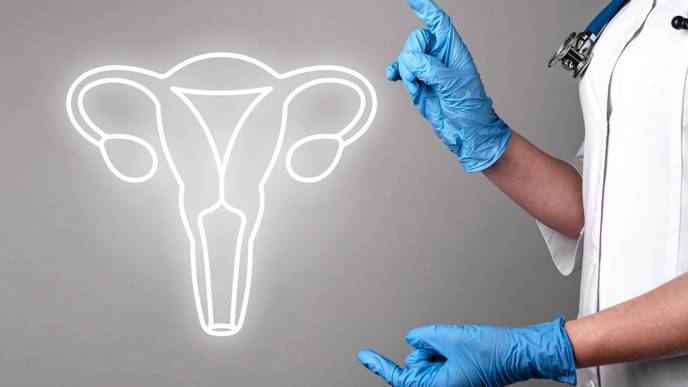Endometriosis in Women May Be Caused by Bacterial Infections: Study

06/22/2023
Japanese researchers have found that endometriosis, a gynaecological disorder which affects one in 10 women between the age of 15 and 49, may be the result of a bacterial infection.
Their findings, published in the journal Science Translational Medicine, showed that using an antibiotic to target Fusobacterium reduced the formation of lesions associated with endometriosis.
The Mayo Clinic defines endometriosis as a often painful disorder in which tissue similar to the tissue that normally lines the inside of the uterus -- the endometrium -- grows outside the uterus.
Endometriosis most commonly involves the ovaries, fallopian tubes and the tissue lining the pelvis.
The disorder can cause lifelong health problems, including pelvic pain and infertility.
Although it can be treated using hormone therapy and surgical resection, these procedures sometimes lead to side effects, recurrence, and a significant impact on pregnancy.
The antibiotic treatment targeting the bacterium shows potential for easier diagnosis and treatment, and suggests an alternative treatment for this disorder, said researchers from the Nagoya University Graduate School of Medicine.
In mice studies, they found that the uterus of mice infected with Fusobacterium had more and heavier lesions.
However, mice that had been given an antibiotic to eradicate Fusobacterium saw improved lesion formation.
The team's findings strongly suggest that targeting Fusobacterium is an effective non-hormonal antibiotic treatment for endometriosis.
"Eradication of this bacterium by antibiotic treatment could be an approach to treat endometriosis for women who are positive for fusobacteria infection, and such women could be easily identified by vaginal swab or uterus swab," said Yutaka Kondo.
The study also shows the benefit of looking at upstream events to determine causative agents.
The initial finding was that a protein called transgelin (TAGLN) was often upregulated in patients with endometriosis. This was unsurprising because the protein is associated with processes that are important in the development of endometriosis.
However, this finding led the team to determine that transforming growth factor beta (TGF-beta) seemed to cause the upregulation of TAGLN.
Since TGF-beta is released by macrophages, the natural anti-inflammatory response and immune regulation cells of the body, this led them to conclude that these macrophages were being activated in response to Fusobacterium.
"In this study, we demonstrated that the Fusobacterium-TAGLN-endometriosis axis is frequently dysregulated in endometriosis," said Kondo.
"Our data provide a strong and novel rationale for targeting Fusobacterium as a non-hormonal antibiotic-based treatment for endometriosis."
Clinical trials of antibiotic treatment for human patients are ongoing at the Department of Obstetrics and Gynecology at Nagoya University Hospital.
(With inputs from IANS)

Facebook Comments